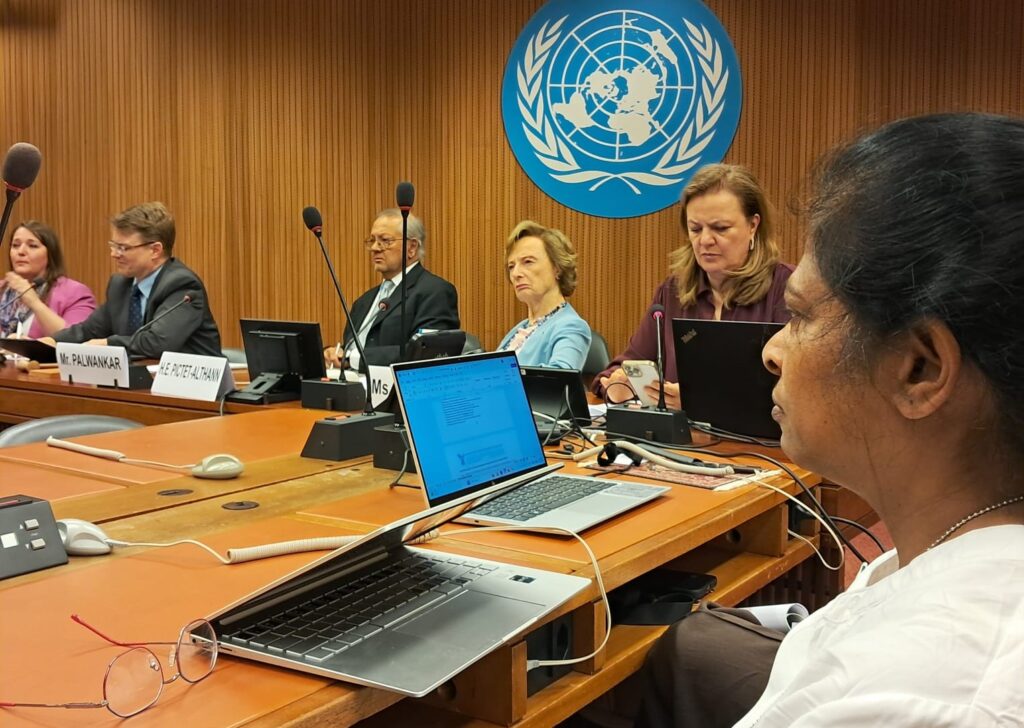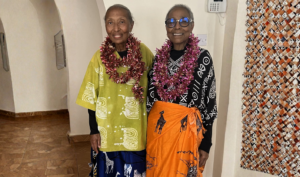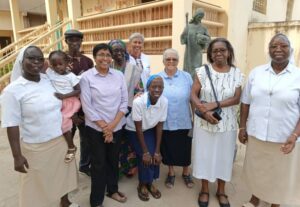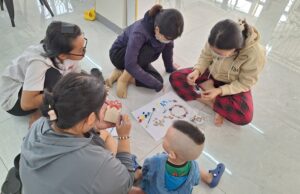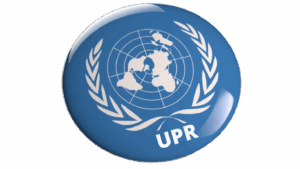By Sr. Taskila Nicholas, Main NGO Representative, Geneva, GSIJP
When I first stepped into the halls of the UN in Geneva, I thought diplomacy was all about words. But I quickly learned that real influence often happens in the quiet moments—listening, observing, and understanding the invisible threads that connect us all.
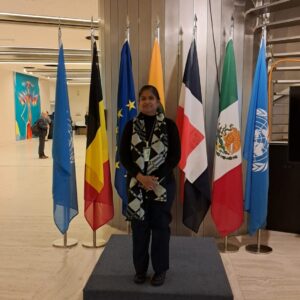 Representing the Congregation of Our Lady of Charity of the Good Shepherd in this global space wasn’t just another responsibility—it was a journey that changed how I see the world. I arrived as a human rights defender with grassroots experience and ideas. But what I gained was something deeper: a stronger commitment to justice, and a renewed understanding of what it truly means to stand in solidarity across cultures and causes.
Representing the Congregation of Our Lady of Charity of the Good Shepherd in this global space wasn’t just another responsibility—it was a journey that changed how I see the world. I arrived as a human rights defender with grassroots experience and ideas. But what I gained was something deeper: a stronger commitment to justice, and a renewed understanding of what it truly means to stand in solidarity across cultures and causes.
My first day at the Palais des Nations was unforgettable. Walking through the same halls where decades of negotiations, resolutions, and urgent appeals for human dignity had taken place made the responsibility all the more real. I reminded myself that I was here to carry the voices of the vulnerable, to advocate for those who are so often left out.
In Geneva, diplomacy moves fast. During Human Rights Council sessions, you might spin from a discussion on climate finance to a debate about humanitarian crises or digital safety. The work goes beyond technical skills. It asks for emotional awareness, deep listening, and full presence.
One moment I’ll never forget was a video statement by a young Lebanese girl speaking before the Council. She was asking for something so simple, yet so powerful: the right to enjoy her childhood in peace and freedom. Her voice was steady, but her words hit the room like a wave. It was just the truth.
What people often don’t see is that real diplomacy often occurs outside the spotlight, in informal conversations after sessions, over coffee during side events, when we share priorities and reflect on what is truly needed in the countries we serve.
Geneva taught me that diplomacy isn’t about “winning” a discussion, it’s about staying grounded in Good Shepherd values, even when the conversations are hard. I met delegates whose worldviews were completely different from mine. Some moments were tense. However, I learned to keep listening, to find common ground whenever possible, and to remain present.
The most important lesson is to stay respectful and keep advocating, even when it feels like nothing is moving—something always is. Advocacy isn’t just a process. It’s a commitment to take the grassroots reality to a global platform.
To end, I’ll say this: I realized that diplomacy at the United Nations isn’t driven by power—it’s built on persistence, listening, and following the process with purpose.
